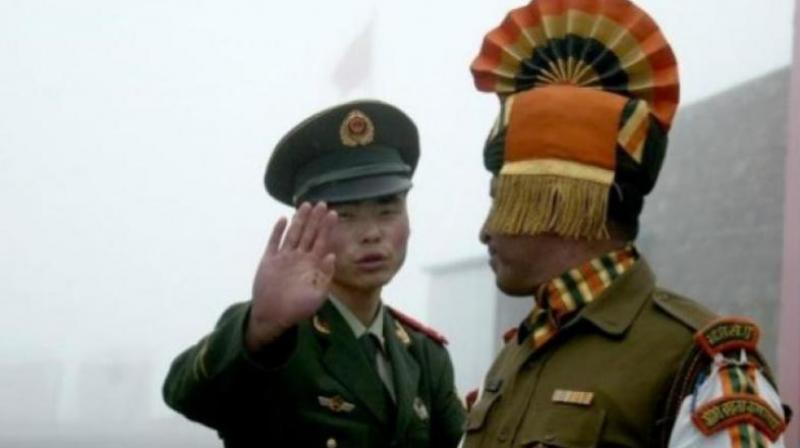India says Sikkim standoff over, China agrees to make 'adjustments'

New Delhi/Beijing: After three months of standoff at Doklam India has agreed to expeditious disengagement of border personnel but not going to reduce the guard along the Indo-China border.
Disclosing that India showed its maturity by agreeing to deescalate the situation and China has also indicated its understanding, security sources engaged in diplomatic negotiations told this newspaper that possibility of China resorting to some other mischievous acts on other frontiers cannot be ruled out.
Informing that border guards have been asked to remain alert and vigilant to the activities of China, security sources said that there are indications of China continuing with its malicious campaign against India because of their internal political compulsions.
Earlier, spokesperson of external affairs ministry in a statement said, “In recent weeks, India and China have maintained diplomatic communication in respect of the incident at Doklam. During these communications, we were able to express our views and convey our concerns and interests.
On this basis, expeditious disengagement of border personnel at the face-off site in Doklam has been agreed-to and is ongoing.”
Pointing out that status quo in Doklam would be maintained, security sources said that both the countries have also agreed to continue their routine patrolling in the areas.
Refusing to divulge more on resolution of the standoff, security sources however said that it was a win-win situation for both the countries.
MEA Press Statement on Doklam Disengagement Understanding pic.twitter.com/fVo4N0eaf8
— Raveesh Kumar (@MEAIndia) August 28, 2017
The move of resolving the standoff comes ahead of the Prime Minister Narendra Modi’s visit to Beijing for the 9th annual BRICS summit.
Meanwhile, China said it was "pleased" that India had agreed to withdraw troops from a disputed border with Bhutan following a months-long standoff in the Himalayas.
Foreign ministry spokeswoman Hua Chunying confirmed that Indian troops and equipment had pulled back while "Chinese troops continue to patrol on the Chinese side of the boundary".
Chunying said, "China continues to exercise sovereignty. China will make adjustments according to the situation."
Asked if the Chinese statement means that China has not made any concession, officials in New Delhi said expeditious disengagement implies withdrawal of both parties because a unilateral withdrawal by India would not have needed or required an agreement with China.
The military standoff which began in mid June with India’s opposition to China’s road construction in Doklam, a disputed tri-junction point between India-Bhutan-China basically belongs to Bhutan but allegedly claimed by China as its territory.
Doklam is a few kilometres away from India’s strategically important Chicken neck passage, which connects mainland India with its northeastern part.
Small incursions and troop stand-offs are common along other parts of the contested 3,500-km (2,175-mile) frontier, but the recent impasse was marked by its length and the failure of talks to resolve the dispute, raising fears of a wider escalation as both neighbouring countries compete for influence.
The Nathu La Pass on the frontier between the Indian state of Sikkim and Chinese-controlled Tibet, was the site of a fierce border clash between Chinese and Indian troops in 1967.
(With agency inputs)

